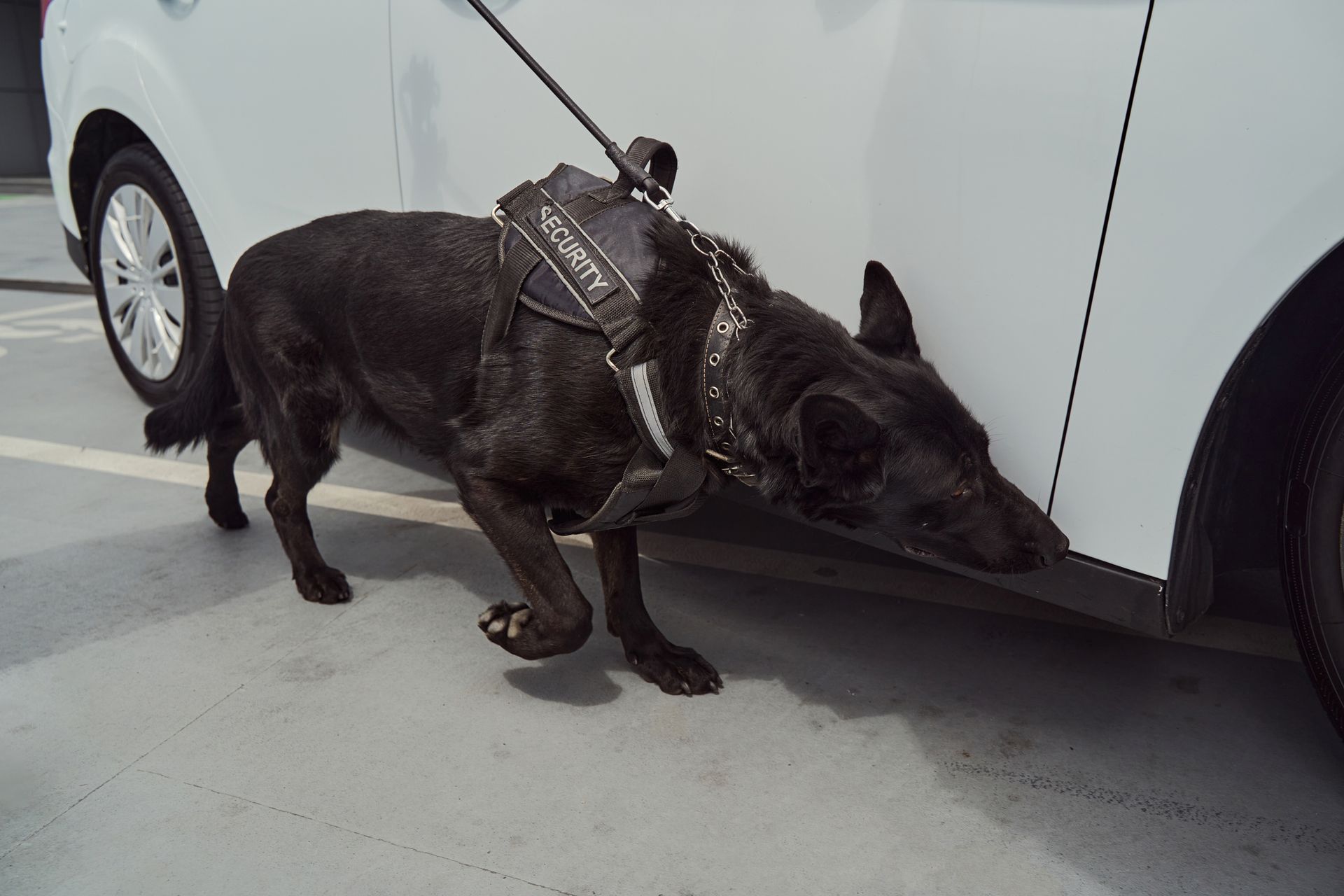Welcome to Aguilera Law PLLC
What Are Your Rights When it Comes to 'Nosy' Drug Dogs?

The U.S. Constitution’s Fourth Amendment protects citizens from unreasonable searches and seizures. However, everyday Americans have their rights violated in “unreasonable intrusions by the government (law enforcement).” One type of search often performed by police officers that is an exception to the Fourth Amendment is a search using canine officers.
K-9 Officers have a lot of leeway. However, there are still protections in place which can be used to dispute the validity of illegal searches. It is extremely important to understand your rights when you interact with police officers to protect yourself.
What are your rights when it comes to K-9 officers search and seizure during a traffic stop?
To search your vehicle, an officer must have probable cause. It is quite standard for police K-9’s to be trained in drug detection which in turn is a tool for police officers to create the required probable cause for the search. Even when it doesn’t exist.
Many people aren’t aware that they can deny the search if a police officer asks to search their car. Always remember to be respectful, your attitude towards the officer is likely being recorded. If you say yes and consent, it becomes legal for the officer to search your vehicle. However, an officer does not need your consent to allow a drug dog to do a sniff search of the outside perimeter of your car. If the dog alerts as a result of the search, the alert provides probable cause for the police officer to search the interior of your vehicle without your consent.
If the officer doesn’t have a police dog, they will need reasonable suspicion to continue to detain you for an extended period while waiting for the drug dog to arrive at the scene. During this period, you have the right to determine if you can leave by asking, “Officer, am I free to go?” This is important especially if body camera footage records you asking this question. If an officer ends up asking for a K-9 to arrive, they have to ask the dispatcher and the responding time and arrival time is always logged and traced.
If after asking if you are free to leave and the officer refuses and detains you, you have the right to remain silent and refuse to consent to any searches. Denying an officer permission to search your vehicle or belongings cannot hurt you or be used against you. This will only help a defense attorney to contest the validity of the stop and delayed detention.
What are the rules for officers using a drug dogs?
Officers do not have free rein to search just because they have a dog. Each department has their specific rules that officers need to follow when they call for a drug dog, including the following:
- The initial stop must happen because the officer has a reasonable suspicion that you are committing a criminal offense, such as a traffic violation, or as a result of their community caretaking duty. I’m
- An officer may not prolong a traffic stop for an unreasonable amount of time to wait for a K-9 to arrive. Note: Some departments may ask a neighboring agency to assist if they have a K-9 officer on duty. If this happens, remember what agency responded.
What is considered an unreasonable delay is a case by case basis. It would be best to have a great attorney with experience who can analyze your case to determine when a traffic stop has been unreasonably prolonged.
An officer’s traffic stop includes checking the driver’s license, registration, proof of insurance, and running a warrant check on their computer or via dispatch on the radio. The issue is how long this process takes that individual officer and whether or not the time was reasonable.
Never consent to a search
When you are pulled over for a traffic violation, it is because the officer suspects that you’re committing a crime. Still, to search your vehicle, an officer will need one of the following:
- Your consent
- A warrant from a judge
- Probable cause
The general rule was laid out in the Supreme Court case of Rodriguez v. United States. Unless police have “reasonable suspicion” of a crime, it is unconstitutional to unreasonably prolong a legal traffic stop to conduct a dog sniff.
If the court finds no reasonable cause that would justify a delay and police officers still delayed your traffic stop, any evidence found after the search could be considered illegally obtained and suppressed. An experienced criminal defense attorney can argue for that evidence to be suppressed and not allowed to be used against you. Anyone facing a drug charge should contact an experienced criminal defense lawyer as soon as possible. This will allow your attorney to begin building your defense.



